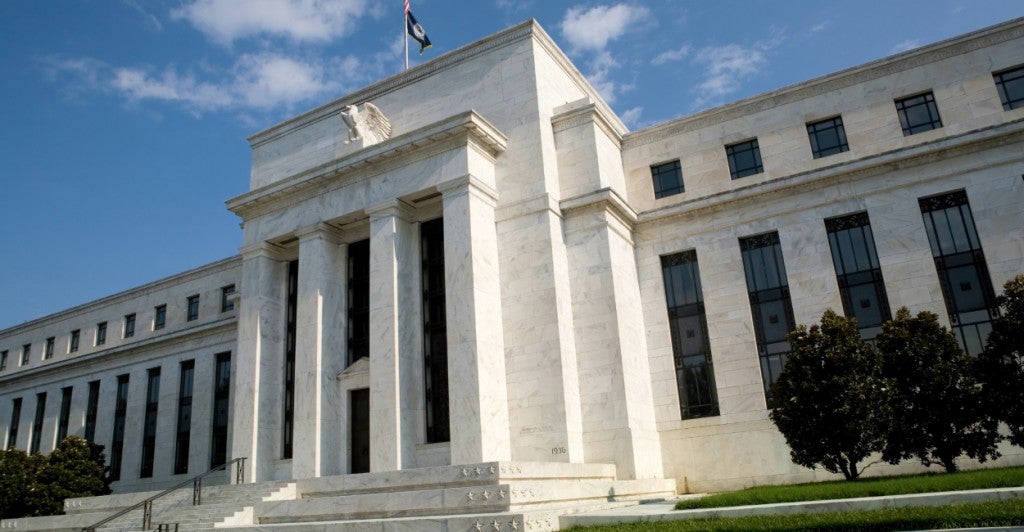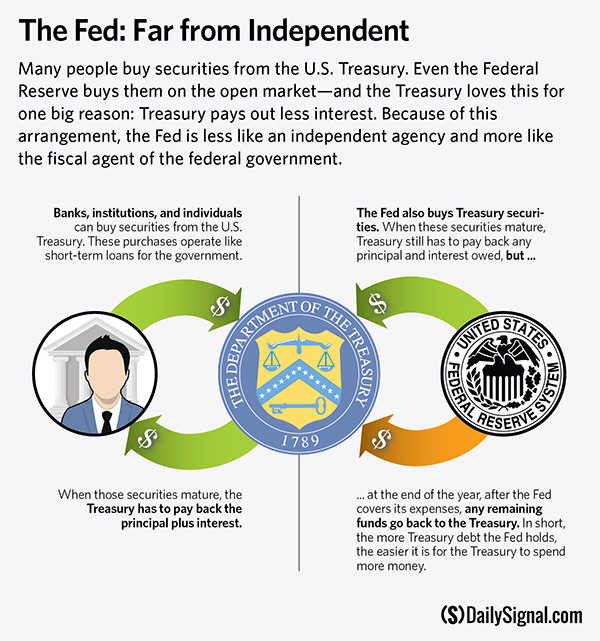The Washington Post’s Robert Samuelson is the latest commentator to paint conservative critics of the Federal Reserve as dangerous and misinformed. Samuelson discounts auditing the Fed and imposing a monetary policy rule as merely ideological, but the truth is that he’s overly dismissive.
These common sense reforms do have their share of scholarly support and they are long overdue. Nonetheless, Samuelson claims that:
There are no obvious advantages to these proposals. Their common purpose seems to be to harass the Fed — to make it less powerful. This would fulfill conservatives’ political agenda.
As for the audit proposal, Samuelson deserves credit for recognizing it has nothing to do with a standard financial audit (a point that many critics ignore). Instead, the proposal would remove restrictions on the Government Accountability Office (GAO) to allow for a retrospective exam of the Fed’s monetary policy actions.
To suggest that such an audit would turn over monetary policy to Congress borders on the absurd. The GAO, after all, is the independent, nonpartisan, congressional watchdog that regularly investigates how the federal government spends taxpayer dollars.
The Fed typically doesn’t directly spend taxpayer dollars, but its operations undoubtedly impact federal revenue. For that reason alone, no aspect of what the Federal Reserve does should be off limits to the GAO. The GAO’s official mission is to:
Support the Congress in meeting its constitutional responsibilities and to help improve the performance and ensure the accountability of the federal government for the benefit of the American people. We provide Congress with timely information that is objective, fact-based, nonpartisan, nonideological, fair, and balanced.
Several former GAO officials have even pointed out that critics of “Audit the Fed” are maligning the GAO. For instance, former head of the GAO David Walker, told the Wall Street Journal “The GAO will not allow itself to be abused. It conducts its work on a fact-based, nonpartisan, nonideological fashion.”
Regardless, the burden of proof should be on “Audit the Fed” opponents. They should have to explain, for example, exactly what should exempt the Fed from the same sort of Congressional oversight applied to other federal agencies.
They should also describe exactly how “a retrospective examination of Fed monetary policy, an exercise in second-guessing” could lead to real-time political interference with the Fed’s interest rate target.
Whatever justification they come up with, it surely can’t be the Fed’s historical economic performance. Those who fear that a policy audit will destroy the Fed’s “independence” are also ignoring history.
The Fed is no more independent than any other federal agency, and it has a long history of collaborating with the executive branch.
Samuelson’s critique of rules-based proposals is also overly dismissive. He insists that there are no obvious advantages to this proposal, but a long line of economists have shown what these advantages are.
In fact, two economists won a Nobel prize for demonstrating that rules-based policies provide a clear advantage over a purely discretionary framework for a central bank. This Nobel-winning work showed that under pure discretion, even if the Fed were to select the best policy it possibly could, the result would be higher inflation without any corresponding gain in employment.
Yet Congress has allowed the Fed to have pure discretion in monetary policy.
Critics suggest that the rules-based proposal might make monetary policy too inflexible, and it’s certainly worth having that debate. However, such criticism simply does not apply to the recently proposed bill (introduced by Representative Bill Huizenga, R-Mich., and Representative Scott Garrett, R-N.J.) that would impose a rule on the Fed.
This legislation would require the Fed to select a rules-based monetary policy, but it would also give the Fed the flexibility to stop following the rule.
In other words, the recently proposed bill would allow the Fed to pick its own rule and to stop following the rule if the Fed felt it necessary to do so. That’s a strange definition of inflexible.
The starting point for this entire debate should be a widespread recognition that the Federal Reserve Board of Governors is, in fact, a federal agency. And it’s a special agency because the more U.S. debt the Fed holds, the more it enables deficit spending.
The Fed is purely a creature of Congress, the political body which gave the Fed its directive to focus on both inflation and employment. Congress also gave the Fed so-called emergency lending powers, and the Fed has a long and miserable record of using it to bail out insolvent/failing financial firms.
The federal debt, deficit spending, inflation, unemployment and bailouts will always be political issues, so there’s no point in pretending otherwise. The good news, though, is that Congress can improve economic outcomes by eliminating the Fed’s broad discretionary powers and opening its monetary policy decisions up to GAO audits.
Everyone—not just conservatives—should be on board with these changes.

